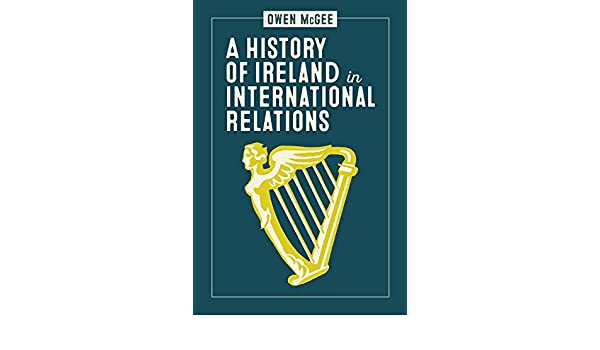A History of Ireland in International Relations
by Owen McGee (Irish Academic Press, €24.95/£21.99
In this book the author takes up the challenge of the late Garret FitzGerald to future historians that “the international economic context behind Irish political history” should be “fully integrated into the narrative of both the Irish state and its international relations”.
Dr McGee rises to the challenge. There are 14 pages listing books and archives consulted and the footnotes to each chapter show an awesome range of research. There is a danger here of not seeing the wood for the trees and the reader has to toil to make sense of some convoluted arguments.
That said, the effort to put Ireland’s political history into an international economic context is a valuable exercise even if we have to begin briefly with early Irish Christianity and the Middle Ages.
The author is clearly influenced by the ideas of Arthur Griffith about whom he has written a biography. For Griffith and early Sinn Féin a new Ireland could only flourish free from British economic as well as political bonds.
Unfortunately the 1921 Anglo-Irish Treaty tying the Free State into the British Commonwealth and sterling zone was a brake on any attempt by the new Government to widen international trade relations; a situation which would not really ease until the early decades of membership of the EEC.
Balances
The conservative Department of Finance was quite happy with this dependence seeing that London held the Irish sterling balances and, so the author claims, Belfast limited our banks’ freedom through its close link with the Bank of England.
In the post-World War II period the book reveals the behind the scenes manoeuvres of Irish civil servants including diplomats. They were trying to push their political masters into fuller engagement with the United States’ efforts to use the Cold War to oversee western European economies. Ireland only reluctantly accepted Marshall Aid.
Irish post-war governments were more interested in burnishing their international credentials through membership of the United Nations, promoting nuclear disarmament and an aid programme for the Third World following Irish missionaries’ footsteps.
A theme is the secrecy surrounding the making of Irish foreign policy, especially under Frank Aiken in the 1950s and 1960s. This was an area mainly for the cognoscenti – diplomats, civil servants and the few interested politicians.
The invasion of the Bogside in August 1969 and the subsequent 29 years of violence both north and south is covered in a rather summary fashion as it distracts from the economic themes.
Membership
The period also coincides with the first three decades of EEC membership which saw Ireland using its new freedom from economic dependence on Britain to connect with the wider world. Dublin governments had the twin tasks of engaging with London on solving the Troubles and seeking a new future in North-South relations while also expanding economic and political relations with Western Europe that EEC membership opened up.
The author marvels at the transformation from the time of the Griffith dream of real independence”
EU enlargement to the former Warsaw Pact countries opened up even wider areas in international relations, political and economic, for Dublin to exploit. The Department of Foreign Affairs added ‘Trade’ to it title and expanded its diplomatic coverage to almost 60 countries. The author marvels at the transformation from the time of the Griffith dream of real independence.
“In effect, within the combination of these two forums of the UN and the EU, the Irish State professed to have found a means to discover a fully aligned place within the world of international relations that could match the historic, political and cultural traditions of the Irish nation itself.”



